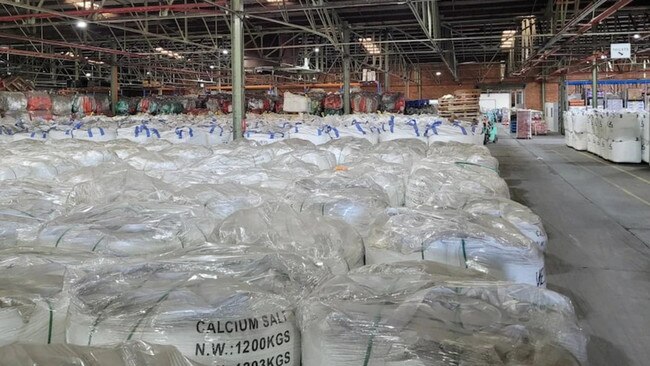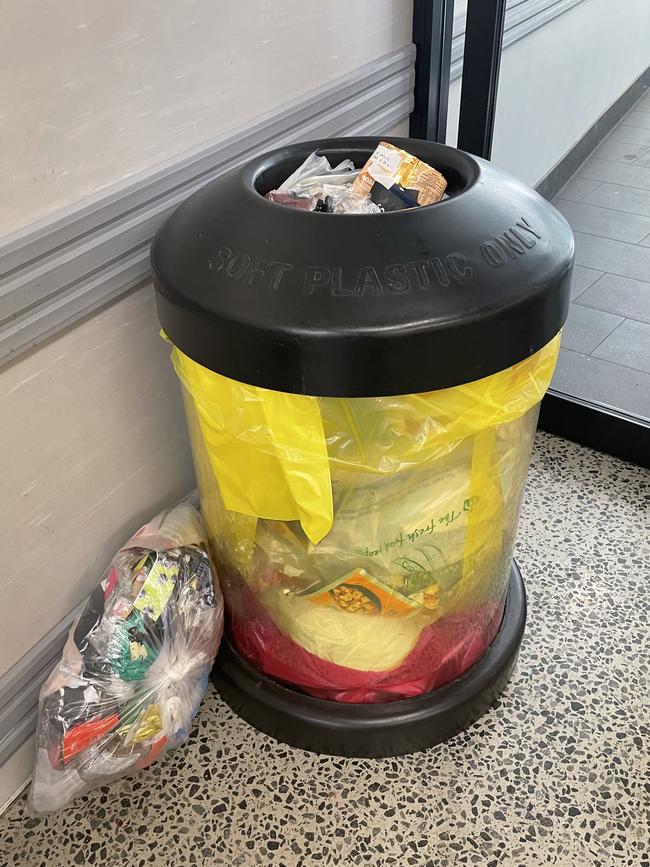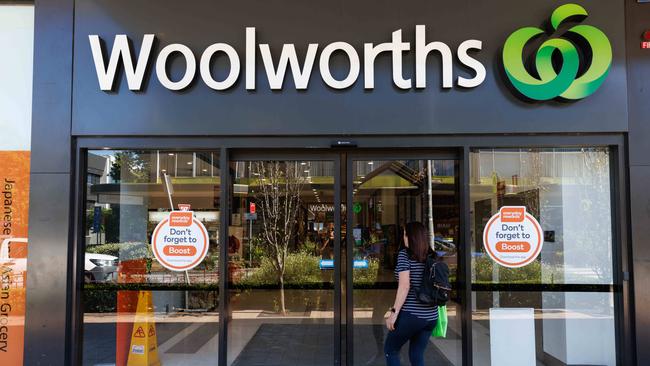Fate of tonnes of dangerous soft plastics from failed REDcycle program revealed
Woolworths and Coles are rushing to meet a deadline set by the environment protection watchdog to get rid of tonnes of “high-risk” waste.
Woolworths and Coles will fail to recycle hundreds of tonnes of soft plastics from the defunct REDcycle program but say they will still meet its deadline for relocating high-risk stockpiles.
The major supermarkets were given a May 12 deadline to relocate 2500 tonnes of soft plastics from sites in NSW that the state’s Environment Protection Authority has deemed “high-risk”.


A spokesperson for both supermarkets says they have been “working urgently to find a site large enough” for the waste since they took over the stockpiles from REDcycle two months ago.
“This is a huge logistical undertaking and we’re on track to meet the deadline for relocating the high priority stockpiles in NSW,” she said.
The two major supermarkets have had to use more than 250 truckloads and around 5000 pallets to move the tonnes of soft plastics to the Bingo Resource Recovery Centre in Orchard Hills after it was approved as being safe enough to store the material.
However, not all of the material will be sent to landfill after hundreds of tonnes were found degraded past the point of recycling.
Around 400 tonnes will be sent to the tip, representing 3.6 per cent of the national stockpile.


“Unfortunately, we have been left with no choice but to dispose of this soiled material, which represents a small portion of the total stockpile,” the spokesperson said.
“We know this is disappointing, and it is sadly a consequence of REDcycle’s stockpiling over an extended period.”
Woolworths and Coles have confirmed that more of the plastic may have to be sent to landfill as it works its way through the mountains of plastic.
“We are working with stakeholders across the country to clean this up and to maximise the amount of the stockpile that can be effectively recycled.”
The two supermarkets took control of the 44 warehouses holding REDcycle stockpiles shortly before the company filed for voluntary administration.
Both supermarkets are contributing to a “multimillion-dollar” fund to store and manage the stockpiled material.


